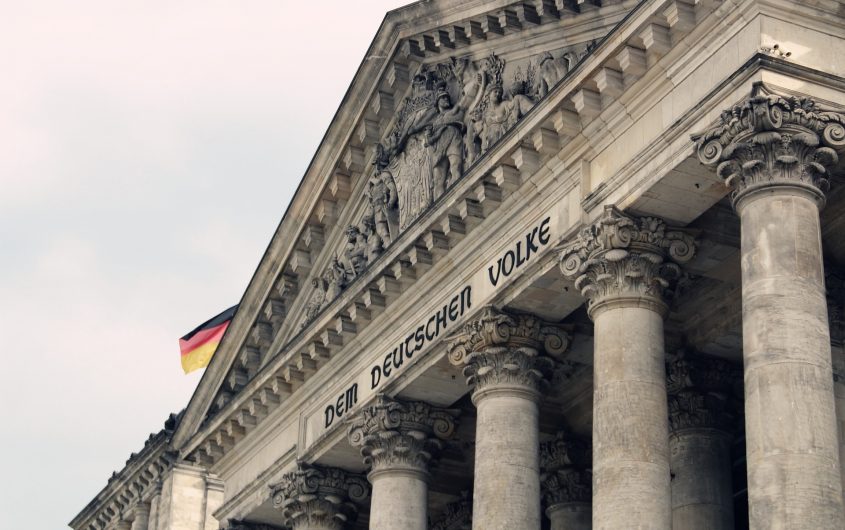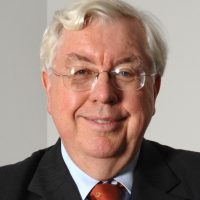
via Pixabay
What Does Germany Want?

John Kornblum
AGI Trustee
John Kornblum is a senior counselor at the international law firm Noerr LLP and a former U.S. ambassador to Germany. He is a member of the AGI Board of Trustees.
Germany’s coalition talks will be tricky. And so remains accepting its role as a leading global actor, writes former U.S. diplomat John Kornblum.
On September 26, much of the world took a deep breath and waited for the results of what had been called the most important German election in a generation. But most German voters seemed to be unaware of the world’s interest. Instead of giving one or the other of the parties on the ballot a clear mandate, voters spread their support among six parties and gave no one a clear victory. Each of the two leading parties claims a mandate to form a government.
For most of the world, this is not an unusual outcome. But for a Germany accustomed to rapid counting of the votes and near certainty of the results within a half hour of the polls closing, this is a confusing situation. The fact that the two big parties have only about 25 percent of the vote each means that to be able to form the next government, each of them needs the support of some combination of the smaller parties.
The coalition negotiations
In reality, only two parties, the Liberals and the Greens, come in question. Unfortunately, each of these two parties has a very specific philosophy which clashes with that of the other. Getting them together with either the center-right CDU or the center-left SPD will be a Herculean task. But there is no other way out.
The liberal FDP follows a version of Manchester capitalism and pursues an agenda of low taxes, little regulation, and individual freedom. The Greens grew out of the anti-nuclear energy and peace movements of the 1980s. They have only recently moved closer to the mainstream of German politics and have even become admirers of NATO.
Four years ago, Angela Merkel sought to negotiate a so-called ‘Jamaica Coalition’ between the CDU and exactly these two parties. After many weeks of discussion, the plan fell apart and the CDU was forced to return to the grand coalition with the SPD.
To complicate things even more, Olaf Scholz lost the race for party chairman a few years ago, amidst a dramatic leftward turn of the SPD membership. If given the opportunity, can he actually gain party agreement for a coalition which, according to the September 26 results, must include the FDP? And even if the SPD grudgingly goes along, can he ever build consensus between the FDP and the Greens? Conversely, could the CDU’s candidate Armin Laschet ever find common ground with the Greens?
The SPD surge
Polling shows that voters did not chose Scholz because of the leftward swing of the SPD or even because of the principles of the FDP or the Greens. In fact, his attraction was exactly the opposite. The calm, conservative Hamburg native struck the public as being very similar to Angela Merkel. Even large numbers of former CDU voters chose him over the CDU candidate, because they believed that he would do best in preserving the type of government presented by Merkel, which, we should remember, was considered by many observers to be dangerously stagnant.
In other words, amidst all the talk of climate change and digital sovereignty, German voters appear to believe that the future of Europe should be decided by a coalition of parties which cannot agree on anything, but whose leader seems to promise the very ‘stagnation’ that was condemned by not only the SPD, but also by the FDP and the Greens.
One look around the world would suggest that Germany is faced with many challenges that require more innovative leadership than Merkel wanted to provide. But that fact did not seem to motivate German voters. They appear to feel happy and satisfied with their lives.
That raises a question: Why did the world tune in expectantly for German results as it never had before? Quite simply, because when combined with its central geographic position and its economic skills, Germany has always been Europe’s natural leader. That’s the main reason why both Maggie Thatcher and François Mitterrand so vehemently opposed reuniting the German states in 1990. U.S. President Biden understood completely when he was careful to compromise on the unpopular Nord Stream 2 pipeline, and just a few weeks later deeply insulted the French president by pushing a French submarine aside in favor of an American product to be sold to Australia. Even worse for French sensitivities, he included the British in the deal.
Germany’s role in the world
Something is happening here which goes beyond the simple comfort of postwar German society. The European world of 500 million prosperous and well-educated inhabitants is being remade before our eyes. Not on the model of the current EU, which is surely showing its age, but rather as a result of Germany’s talents and determination to maintain its social model, whatever others may think.
In other words, much of the press chatter of a vacuum after Merkel or of Germany’s refusal to lead is beside the point. Whoever is chosen to lead the next German government will inherit power and influence. Germany is probably already the third most important country on the planet. It will be a leading global actor regardless of which parties or leaders control its government.
Both Germany’s friends and opponents would do well to better understand this basic element of the new world order. Whatever the confusion caused by German voters, the world already wants them to take care of its needs. And unless you are a fan of the Swiss Alps, it is exactly this task which Germany has no intention of fulfilling.
This article originally appeared in German in ipg-journal.








